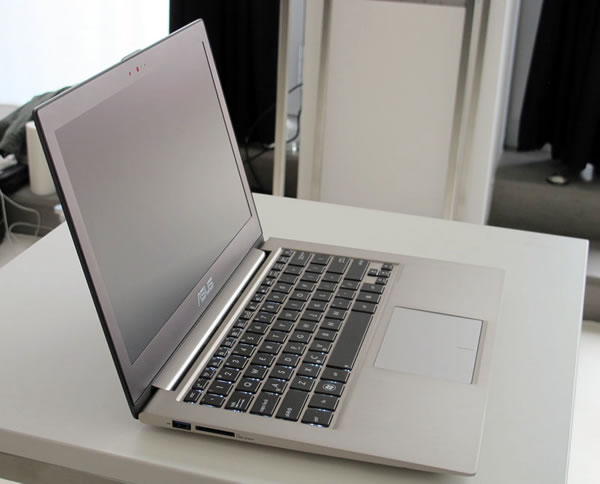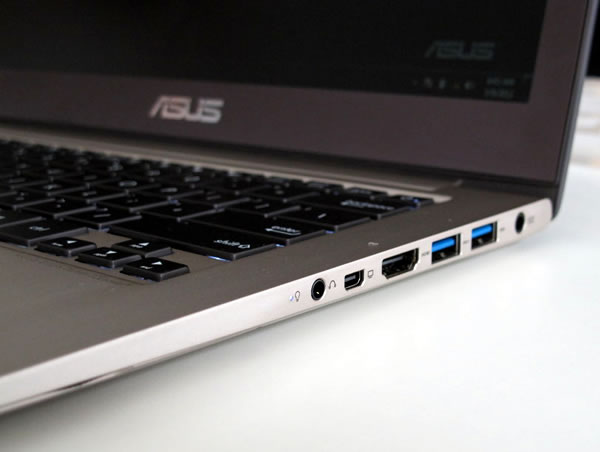Asus has unveiled a new ultrabook with discrete graphics at an event in Taiwan this week. Like virtually every upcoming ultrabook, the 13.3-inch Zenbook UX32VD packs an Ivy Bridge CPU (i3-3217U, i5-3317U or i7-3517U), and although Intel's latest chips boost graphics performance, they're still overwhelmed by intensive tasks. The UX32VD hopes to solve that problem by offering a 1GB Nvidia GeForce GT 620M, which is still an entry-level solution, but should still handle modern games on low or medium settings at 1366x768.

According to Notebookcheck, the GT 620M's performance is on par with a GT 525M, which gets playable frame rates in most recent titles at 720p-ish resolutions, but chokes at 1080p. Asus will reportedly offer the UX32VD with a 1080p IPS panel, which seemingly nullifies the system's gaming potential if you intend to run titles at the native resolution (however, lower-res panels might also be available). It's also worth noting that Nvidia's chip makes the UX32A ~1mm thicker and 0.33lbs heavier than the Zenbook UX31E.
Discrete graphics brings other consequences, too. Reports indicate that the UX32VD ships with a hybrid drive that offers 500GB of mechanical storage alongside 24GB of flash cache. This reduces the overall system cost (presumably to offset the GT 620M), but it will likely sacrifice performance over a true solid-state drive. Although the GT 620M supports Nvidia's Optimus switching technology, it's not a stretch to assume the GPU will reduce overall battery life. Other internal specifications and connectivity are as you'd expect.

The UX32VD is due in Singapore over the coming weeks. International availability remains a secret and so does the pricing, though it's rumored to cost between $800 and $1,100. As is likely evident from the tone of this post, we're not thrilled about the UX32A, but our impressions are admittedly based on secondhand information. We just doubt the GT 620M will add enough of a boost to warrant its addition for most usage scenarios, yet scaling up to a more powerful GPU would only further strain the definition of "ultrabook."
**Images via ComputerBase.de